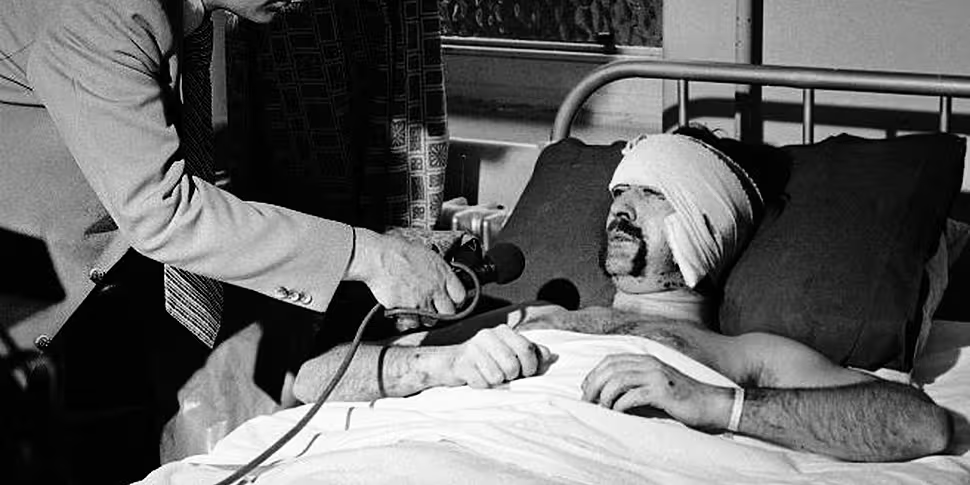West Midlands Police may have been tipped off about the Birmingham pub bombings by an IRA "mole" before they happened, a coroner has heard.
The claim was made at a three-day hearing in the UK to decide whether to reopen the inquest into the deaths of the 21 victims.
Ashley Underwood QC told the Birmingham and Solihull coroner Louise Hunt there was "reason to believe it's the case".
Mr Underwood, who is representing some of the victims' families, said there was suspicion among relatives that investigating officers lied to gain the wrongful convictions of the Birmingham Six.
The men were released in 1991 after their convictions for murder were overturned by the Court of Appeal.
The blasts, which ripped through the Tavern in the Town and Mulberry Bush pubs on 21 November, 1974, also left 182 people injured.
They are widely acknowledged to have been carried out by the IRA, which never owned up to them.

Brian (front right) and Julie Hambleton, brother and sister of Birmingham pub bombings victim Maxine Hambleton, arrive with their legal team for the inquest review into the bombings at the Civic Suite in Solihull. Picture by: Joe Giddens / PA Wire/Press Association Images
Mr Underwood said one reason why officers might have lied to get convictions was to cover up their informant's involvement.
He said: "These were appalling deaths and the only reason it's not been investigated, as common sense dictates, is the false convictions."
An inquest, which opened days after the bombings, was closed without hearing evidence in 1975 following the guilty verdicts.
The sister of one of the victims said before the hearing began on Wednesday that a decision to grant a new inquest could bring the families "a level of peace".
Julie Hambleton, who lost her 18-year-old sister Maxine in the blasts, told Sky News: "We believe that all the victims' families deserve to know the truth.
"Whilst we understand it's not a mechanism to prosecute it would provide the opportunity to look at surrounding circumstances.
"So, really it's a fact-finding process and on the basis of that we would be able to ask our own questions.
"Our legal team would (also) be able to ask questions that we probably haven't even thought of but would provide us with answers that could bring us a level of peace."
Before hearing submissions, the coroner requested West Midlands Police's legal counsel provide her with a list of "lost" evidence, including an unexploded third bomb.
A separate police review of evidence in the case, which ended in 2014, discovered that of the 168 original exhibits listed for the Birmingham Six trial, 35 items could not be located.
A decision on resuming the inquest is expected by 24 February.









